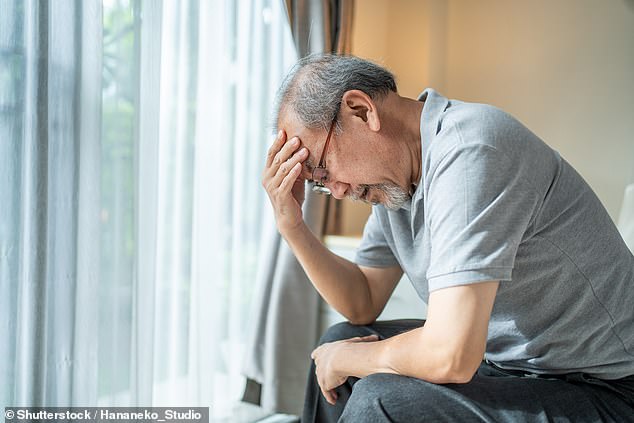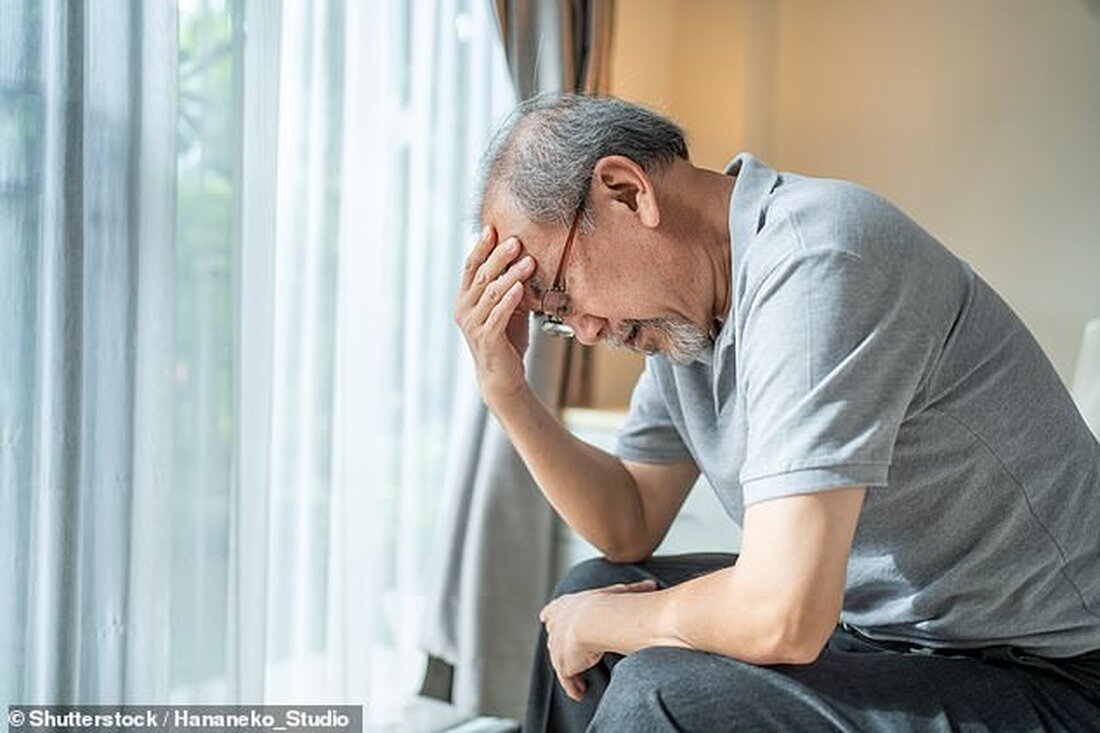If you've been down lately, it could be a sign that you're at risk for a stroke.
Researchers have found that people who suffer from it are more likely to feel lonely, sad and fed up in the years leading up to it.
Depression symptoms are common in stroke patients, but experts are calling for more research to see whether they also represent an early warning sign.
The reasons for the connection are unclear, but the effects of stress-induced inflammation on blood vessels may play a role.
Lead author Maria Blöchl, from the University of Münster in Germany, said: “Depression occurs not only after a stroke, but also before a stroke.
“Even a slight increase in depressive symptoms, particularly mood and fatigue-related symptoms, may be an indication of an impending stroke.”
The study looked at 10,000 older adults who had not had a stroke for more than 10 years.
Participants were surveyed about their mood every two years and given a score based on how many depression-like symptoms they experienced.
Researchers found that stroke patients were more likely to have a higher score two years before the illness.

Researchers have found that people who suffer a stroke are more likely to feel lonely, sad and fed up in the years leading up to it (file image)
Dr. Blöchl added: “Depression is one of the most pressing problems faced by people who have suffered a stroke, and it is so common that it is called post-stroke depression.
"But our study found that not only do depressive symptoms increase significantly after a stroke, but that people had already developed depressive symptoms before the stroke even occurred."
Researchers studied 10,797 adults with an average age of 65 who were followed for up to 12 years. During this time, 425 had a stroke.
They were matched with 4,249 people who had none but were similar in age, gender, ethnicity and other health conditions.
Participants took a survey every two years that asked them whether they had experienced symptoms of depression in the past week.
These included depression, loneliness, sadness or the feeling that everything was an effort, and restless sleep.
The more symptoms participants had, the higher their score.
Researchers found no difference in scores six years before a stroke, with both groups scoring about 1.6 points.
But those who suffered one scored an average of 0.33 points higher than those who hadn't suffered one two years earlier.
Dr. Blöchl added: “Whether these pre-stroke changes can be used to predict who will have a stroke is unclear.
“The exact reason why depressive symptoms occur before a stroke needs to be investigated in future research.
“The study also highlights why doctors need to monitor people who have suffered a stroke long-term for symptoms of depression.”
Researchers also examined whether stroke patients were more likely to be diagnosed with depression before suffering the complication.
They found that patients were 5 percent more likely to suffer from clinical depression in the years before a stroke than their peers.
“This suggests that increasing depression symptoms before stroke are mostly subtle changes and may not always be clinically detectable,” said Dr. Blöchl.
Strokes are caused when the brain loses its blood supply, often due to a clot in a blood vessel, known as an ischemic stroke.
Less commonly, hemorrhagic strokes occur when a blood vessel ruptures and the brain is flooded with too much blood while other areas do not receive enough blood.
About a third of stroke patients will eventually develop depression, which is often caused by biochemical changes in the brain.
But in some cases, it's a psychological response to the physical trauma of a stroke.
A 2020 University of Cambridge study of half a million Brits found that people who suffer from depression are more likely to develop heart disease or have a stroke later in life.
The reasons are not yet clear, but depression could be a sign of poorer health in general.

 Suche
Suche
 Mein Konto
Mein Konto

